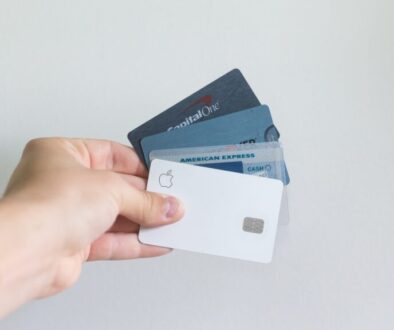Even though knowing how to take care of your personal finances is a vital life skill, you may feel your money-management talents are somewhat lacking. Fortunately, you can take steps immediately to improve your financial insight and gain confidence. This article will give you some tips on handling your finances with skill and intelligence.
If you’re looking to improve your financial situation it may be time to move some funds around. If you constantly have extra money in the bank you might as well put it in a certificate of depressor. In this way you are earning more interest then a typical savings account using money that was just sitting idly.
Most products come with a guaranteed warranty that covers them for a certain period of time. Extended warranties can end up costing you more money in the long run.
Make sure that you are collecting all of the tax credits to which you are entitled. Look out for the following tax credits: Child Care Credit, Child Tax Credit, Lifetime Learning Credit, Earned Income Credit and Hope Scholarship Credit. Visit the IRS’s website for a complete list of tax credits that you may be eligible for.
Don’t be discouraged with a drop in your credit score while you are working on fixing your credit because this is not uncommon. This can happen without any errors on your part. Keep adding good information to your credit report and you will see your score go up over time.
If you have extra money, put it in an online savings account. These accounts can earn you a lot of interest, which can add up to a lot of money over time. Use an online savings account if you want to make your money work for you to achieve your monetary goals.
If you have managed your finances well enough to own a home and have a retirement account, don’t jeopardize those by borrowing against them later. If you borrow against your home and can’t repay it, you could lose your home; the same is true for your retirement fund. Borrow against them only in dire situations.
One of the best ways to stretch your budget is to stop smoking cigarettes. Who can afford to pay almost the equivalent of the minimum hourly wage for a pack of cigarettes that you will go through in less than day? Save that money! Stop smoking and you’ll save even more money in long term health expenses!
It is imperative that one is able to draw from an emergency fund when emergencies arise. The first baby step is to save up 500 dollars of an emergency fund, and then as you can, increase it to 1000 dollars. After you are used to not touching your emergency fund and you start building, you should end up with three to six months worth of living expenses as your emergency fund.
When you are shopping for decorations for the holiday seasons it is always best to wait to buy them after the holiday. The retail stores always put them on sale the day after at insane savings. Sometimes you can save up to 90 percent on holiday items if you just wait!
A great personal finance tip is to always be looking for the best deals when you’re shopping. It’s foolish to decide to buy anything without trying to find it cheaper somewhere else. By shopping around, you can usually find a much better deal than going with your first option.
You should never be afraid to invest in yourself, you never know when it will pay off. If you’re the innovative type and think you can really do well in business, then you should take the risk to invest in yourself. You shouldn’t put a strain on your entire financial situation, but you should still be willing to invest in you.
To help yourself cut back your spending, track your spending. There are many free spending tracking applications available for phones and computers. Take a look at what you’re spending the most money on, and see how essential it is. Seeing where your money goes each month can be sobering, and will let you know what areas cutbacks should be focused on.
If you have not begun contributing to your retirement, you need to start. If you have already started, look for ways to step it up a notch. Maximize your contributions, and if there is any way possible, completely max out your contributions. This will help you immensely when preparing for retirement.
Keep things simple. Don’t set up an elaborate financial tracking plan or be too strict with yourself. Remember, personal finance is something you have to deal with for life, so make it as simple and easy on yourself as you possibly can. Keep your finances under control, but don’t lose your head while you’re at it.
Make regular payments to your savings account. Many people set up a savings account, but don’t make regular payments. If possible, have the money automatically taken out every pay period. This way, you’ll have the money available for an emergency even if you don’t always remember to deposit it.
Use cash or a debit card instead of a credit card, especially when purchases are small. This will save you money in interest if you are someone who does not pay credit card bills in full every month, and will allow you to purchase from vendors who may not take credit cards for small amounts.
If you are denied a credit card or loan, you can get a copy of your credit report and score for free. If a lender makes the decision not to lend to you based on information in your credit report, they will send you a letter that states this, and also tells you how you can get a copy of that report. Get the report so you can see for yourself. What’s in it.
Personal finance learning can be addictive. Even a little improvement in your money-management skills can encourage you to refine your skills further. Go out and educate yourself with enthusiasm! There is no limit to how much money you can save yourself.




